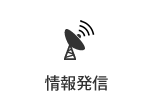本文
No.10(2015)8.Development of separated culture system for iPS cells and feeder cells using a protein-permeable collagen gel membrane
Yoshimi Ohyabu, Shunji Yunoki
Induced prulipotent stem cells (iPS cells) are co-cultured with feeder cells to mainitain their pluripotency, but isolation of iPS cells are problematic because of contamination by feeder cells. We have developed a cell-adhesive gel membrane with permeability for high molecular weight proteins in order to separately culture iPS cells and feeder cells. Membranes of collagen fibrillar gel (1-5 mm thick) were prepared at various collagen concentration, crosslinked with a commercial water-soluble carbodiimide. The gel membranes were mechanically supported by a plastic mesh. The decreases in membrane thickness and collagen concentration increased permeability of bovine serum albumin (molecular weight of 70 kDa), while the networks of collagen fibrils in the membrane were dense enough to prevent cell penetration into the membranes. Mouse embryonic fibroblasts (MEFs) were cultured on biological dishes, and the membranes were set over the dishes. Mouse iPS cells maintained their pluripotency for at least 5 days while they were cultured on the membrane (collagen concentration 0.5%; 3mm thick). These results suggested that the separate culture system allowed the soluble factors from MEFs to permeate the membrane and affected iPS cells. The protein-permeable gel membrane has a potential for being used for cultivation of iPS cells for regenerative medicine.
Keywords
Protein-permeable, Separated culture system, Collagen, iPS cells













